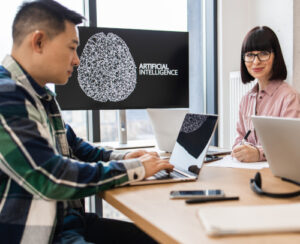
Cape Town’s AI Winter School Bootcamp, Empowering the Next Generation
In the bustling of Cape Town this winter, an inspiring initiative is quietly revolutionising how young South Africans engage with the future of technology. A new AI-focused Winter School Bootcamp is opening its doors to high school learners from under-resourced communities across the Western Cape, offering more than just a holiday distraction. Instead, it promises a life-changing immersion into the world of artificial intelligence, coding, and future-focused career paths.
As technology rapidly reshapes the fabric of modern life, it is often the case that rural and township communities are left trailing in its wake. Access to high-speed internet, digital devices, and quality STEM education is patchy at best, and the opportunities to engage with the kinds of skills that drive the Fourth Industrial Revolution are frustratingly scarce. But that is exactly what this Winter Bootcamp aims to change.
Opening Doors Through Technology
Held at the University of Cape Town’s Computer Science Innovation Lab, the two-week programme will host forty learners between the ages of 15 and 18. These students have been handpicked not for their current digital prowess but for their potential and eagerness to learn. Many of them will be encountering AI and programming for the very first time, and the goal is to demystify the technology that powers much of modern life, chatbots, facial recognition, search engines, and give them the tools to not only understand it but also to start creating with it.
The curriculum, designed in collaboration with local educators, software developers, and UCT postgraduates, offers a balanced mix of theoretical insight and practical application. In the mornings, students delve into the fundamentals of machine learning, data sets, and ethics in technology. Afternoons are reserved for hands-on learning where learners work in small groups to build simple AI-driven projects, ranging from predictive weather models using open-source data, to basic natural language processing apps.
One of the standout features of the Bootcamp is its approach to mentorship. Each student group is paired with a mentor from Cape Town’s tech ecosystem, young professionals who understand both the excitement and the challenges of breaking into the tech industry. This relational approach adds an invaluable layer of relevance and inspiration, helping students to visualise real pathways into careers that once seemed abstract or out of reach.
Transforming Ambitions
For Zanele Makhubela, a Grade 11 learner from Nyanga, the Bootcamp has become more than just an academic experience. “Before this, I thought AI was something only people in America or China did. I didn’t think I could ever learn how it worked. But now I’ve built a chatbot that can respond in isiXhosa! I want to study computer science now.”
It’s stories like Zanele’s that illustrate the Bootcamp’s wider purpose. This is not just about building apps, it’s about building confidence, nurturing curiosity, and shifting what is considered possible. Organisers have been deliberate in ensuring that the experience doesn’t end with the final day. Each learner will leave with a digital portfolio, access to continued online resources, and an invitation to a longer-term mentorship network facilitated by UCT alumni and volunteers.
 The need for initiatives like these has never been more urgent. According to the 2024 National Education Infrastructure Report, fewer than 30% of South African public schools have regular access to functional computer labs. In rural areas, that number drops to just 11%. Without interventions, the digital divide risks becoming a digital chasm, reinforcing cycles of poverty and exclusion.
The need for initiatives like these has never been more urgent. According to the 2024 National Education Infrastructure Report, fewer than 30% of South African public schools have regular access to functional computer labs. In rural areas, that number drops to just 11%. Without interventions, the digital divide risks becoming a digital chasm, reinforcing cycles of poverty and exclusion.
What makes this Bootcamp notable is its baseline sensibility. The funding is modest and largely local, supported by Cape Town-based tech firms and NGOs with a vested interest in seeing the South African tech sector grow inclusively. There are no flashy keynote speeches or celebrity endorsements, just passionate teachers, curious students, and a shared belief in the transformative power of education.
Even the daily logistics are thoughtfully designed. Transport is arranged from key township hubs to ensure safe and reliable access to UCT’s campus. Meals are provided, recognising that learning can’t happen on an empty stomach. Wi-Fi and laptops are shared, with the hope that some will be sponsored permanently for the students who show the most initiative and potential.
Rooted in Local Context
Perhaps most importantly, the Bootcamp is grounded in cultural context. Lessons reference local challenges, water scarcity, education gaps, language diversity, and how AI can help address them. This isn’t tech for tech’s sake. It’s about equipping a new generation of thinkers and makers to solve problems that matter to them and their communities.
Dr. Faheem Patel, one of the lead organisers and a senior lecturer at UCT, reflects on the first few days of the Bootcamp with evident pride. “These kids are brilliant. They just needed a window. We’re not teaching them to be Silicon Valley clones, we’re helping them become innovators in Gugulethu, in Mitchells Plain, in Khayelitsha. The answers to our country’s problems are going to come from our youth, and they need to be fluent in the language of tomorrow.”
The organisers hope to scale the programme to other provinces, adapting the model for different local contexts. Talks are already underway with universities in the Eastern Cape and KwaZulu-Natal. The long-term vision is to create a network of Winter and Summer Bootcamps that not only provide technical skills but also foster a new ethos of local innovation grounded in equity and empowerment.
A Brighter Tomorrow Begins Today
As the winter winds continue to sweep across the Cape Peninsula, inside the sunlit computer lab at UCT there is a different kind of energy, hope, possibility, and young minds unlocking the logic behind machine learning. In a country where access often defines outcomes, the AI Winter School Bootcamp offers something truly radical, an invitation to participate in the future.
And perhaps, when these young learners look back a few years from now, it won’t be the algorithms or syntax they remember most. It’ll be the moment they first realised they belonged in the room where the future is being built.




